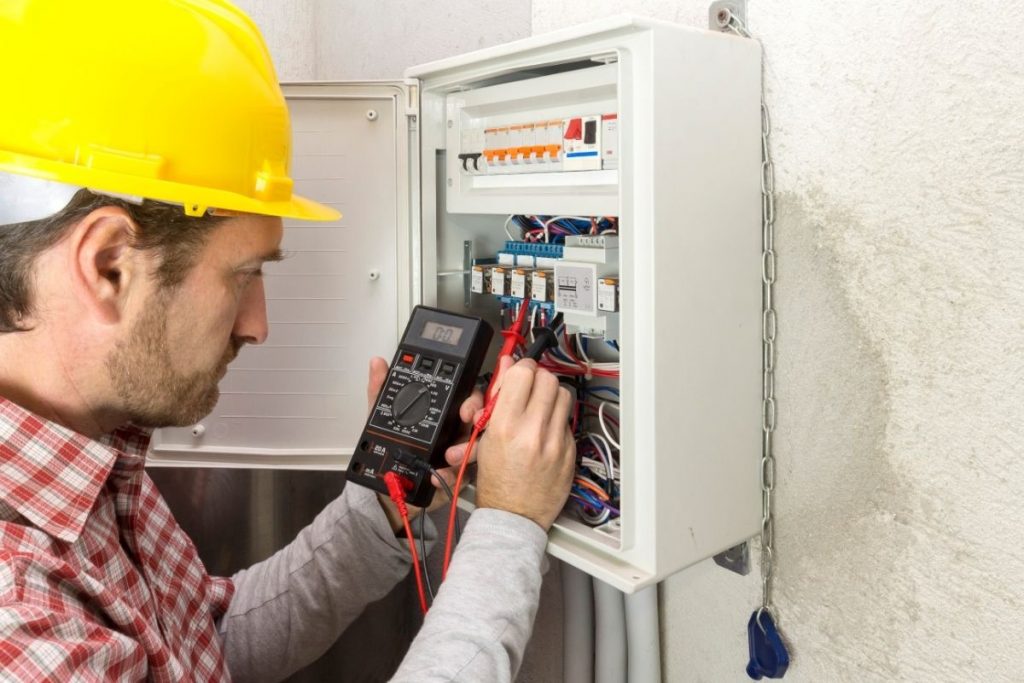
When we’re looking at a great career path, an apprenticeship is always a great way to start. But when we’ve identified the way to go, we now have to consider which field we’re going to hone in on.
Becoming an electrician is one way to go and it’s a very good idea. Electricians in the US earn a lot of money and it’s one of the most sought after services in the country.
The thing is though, you’ve probably heard that apprenticeships take time and you’re not sure if you can afford all this time to give when you want to get out there and earn some money. So, how long does it take?
In this article, we’re going to guide you through all of the ins and outs of an electrical apprenticeship including how long it takes to complete, the career prospects and other helpful information that you may need to know.
Table of Contents
Should I Consider Becoming An Electrician?
In recent times, the Bureau of Labour Statistics reported that electricians are earning a median of $56,000. Now, this is of course a fantastic salary and much higher than some other career paths, but there are other reasons to consider becoming an electrician.
The electrician field is always going to be needed. With our homes mainly powered by electricity to keep our entertainment devices running and our work still going – we’re almost guaranteed to require the services of an electrician at some point.
So, what does this mean? Well, in short – some career paths are becoming more and more obsolete because of the development in technology. For example, although there are still newspapers, journalism has moved more digital to be cost effective and move with the times.
Similarly, video rental stores have become redundant due to the trends of on demand movie services. What this suggests is, when you’re looking at a new career – you’d need to think of something that people will always need and is unlikely to be easily filled by new technology or robots.
Becoming an electrician has this. You can fill the void of recently retired electricians or decide you want to work for yourself – not a problem. But the first thing you need to do is get qualified, and the most common route is an apprenticeship.
So, what do you do?
What Exactly Is An Electrician Apprenticeship?
You can think of an apprenticeship as a training program that runs long term but allows you to earn some money whilst you’re learning on the job.
They’re often run by top professionals, regulatory bodies and companies in the field and require the apprentices to complete a set amount of working hours, along with passing tests and proving that they are worthy to step up to the next level.
Effectively, what you’re looking at is the possibility to be a training professional whilst learning all the skills you need to move your career forward. There are few opportunities out there that do this in the same way, so it’s definitely worth considering.
But How Long Does It Take To Complete?

There are exceptions to this, but you can normally expect an electrician apprenticeship to take between four and five years to complete. Factors that might come into play which can extend this time will include things like:
Falling a test or year, completing a part time course, illness, unforeseen circumstances within the course or gross misconduct.
When you’re hoping to get onto an apprenticeship as an electrician, you can opt for one of a few paths. You can decide to apply directly to a professional electrician apprenticeship group and later attend their school.
If you’re accepted and you then attend their school, you can expect to be provided with professional training and perform hands-on tasks as you’re learning.
Another route is to apply for the Hybrid Electrical Training Program, which aims to move you from a school environment to a college environment whilst also providing you with the correct level of professional training and development.
You’ll learn in the classroom and online, whilst also learning while doing – performing real, practical work that you’d expect a qualified electrician to do, but in a safe environment.
Assuming you continue on their course successfully, you’ll receive an Electrical Training Card (or an ET) which provides you with the opportunity to work and learn – you should graduate from this course within the year!
Another common route is to apply for an apprenticeship with the IBEW (International Brotherhood of Electrical Workers) which also allows you to learn and make money whilst you work. However, while these routes have similarities – they also have their own unique disadvantages.
Here’s what you’ll need to think about.
Trade School Or IBEW – What’s The Right Choice?
While the IBEW is a much longer course, usually around 4 years longer, it’s the most popular choice among prospective electrician apprentices. This means that they have few spaces that remain at the start of their course.
Therefore, you might find it difficult to get accepted onto their apprenticeship unless you stand out from the crowd. Additionally though, the trade school will provide you with a job placement after graduation. So, there’s always something to weigh up here.
There is also the stringent application process. The IBEW method requires you to have already attained a high school diploma or GED, whereas the trade school gives you the opportunity to complete the equivalency prior to enrolling into the apprenticeship.
In fact, the IBEW method has a multitude of requirements like having a licence to drive, being 18 or older and being completely drug and alcohol free. What’s more, you’ll need to be proficient to some level in algebra!
As such, you might be thinking that the trade school is obviously the better option right?
Well, not necessarily. It depends on your career goals and circumstances. The trade school requires you to pay tuition fees, albeit it is only for the year and there are many advantages to it, whereas IBEW requires a union membership which is much cheaper and paid monthly.
Another thing to think about is that IBEW’s time requested of you makes sense. You have the option before enrolling to choose a speciality, such as residential wireman. Each speciality may change the time of completion – but being a specialist can make you more money on the job.
This differs from the trade school that presents a much more rounded learning experience and does not specialise in one area.
Summary
An electrical apprenticeship takes either 1 year at trade school or 4-5 years at IBEW. The path that you choose will largely depend on your circumstances and your career goals and aspirations.
But either path will provide you with a great platform for a long and prosperous career.
Good luck!










I have been an Electrician for years and I must say that it has been a ride. The first 6 months are hard but an apprentice will get used to it as long as they are dedicated to their course and in pursuing a great career path.